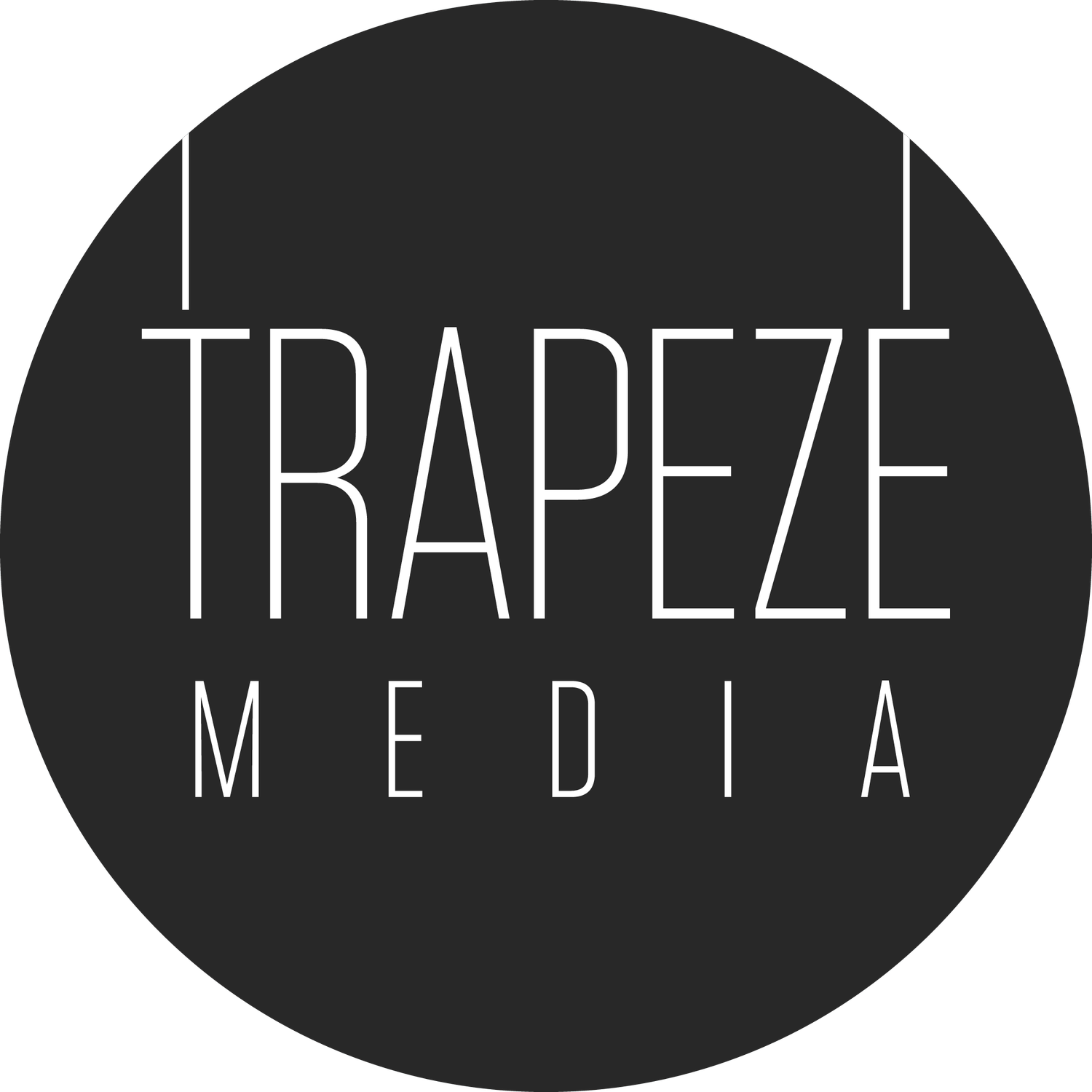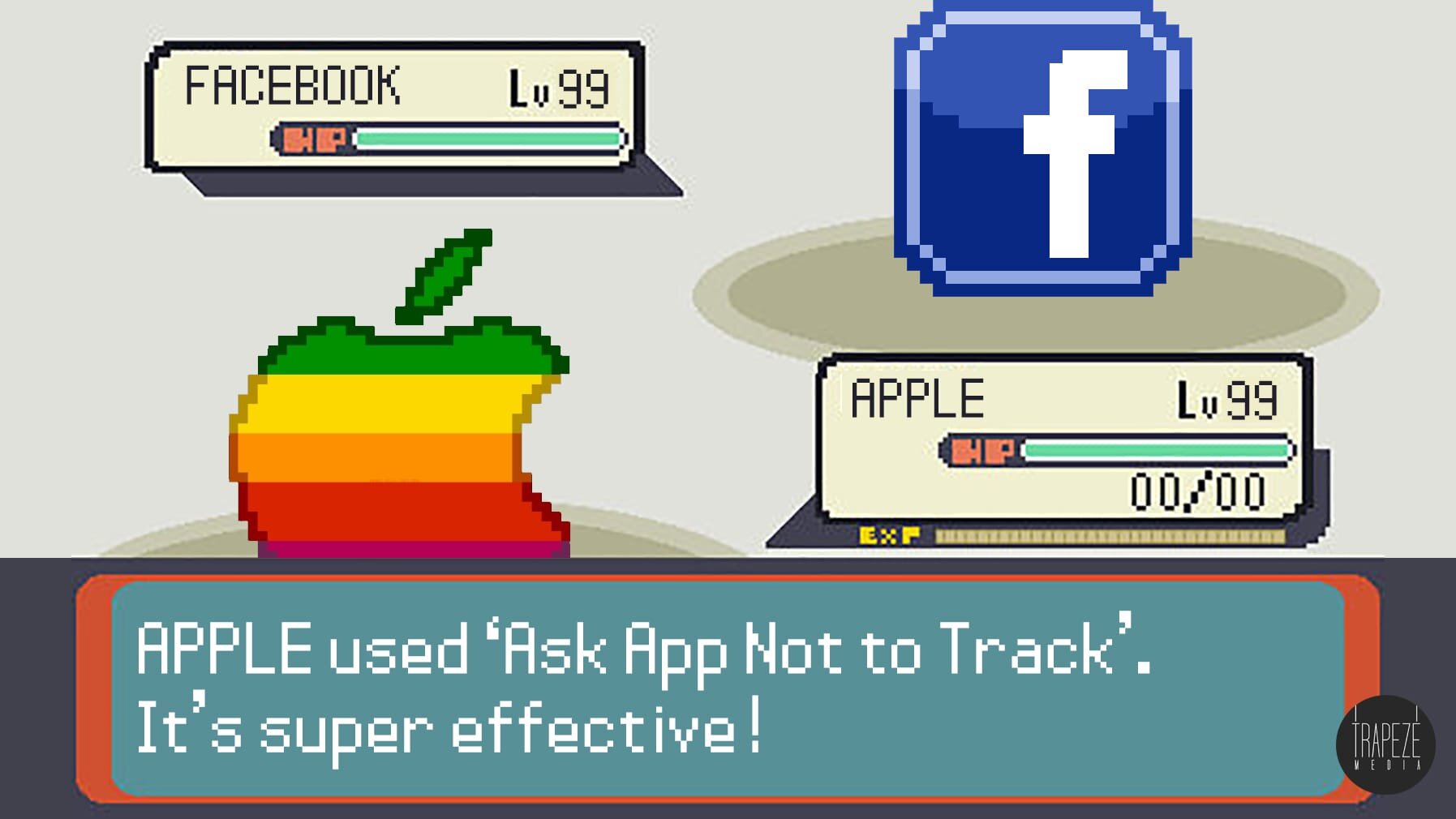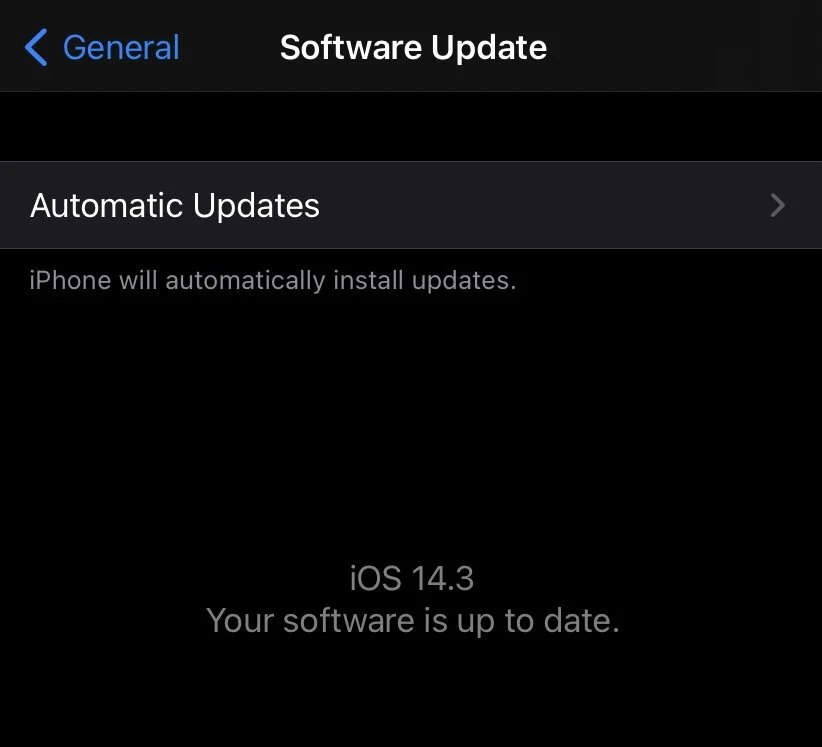iOS 14 vs. Facebook: Apple’s impact on paid ads, explained
Last updated: 19th February 2022. Original story follows here. Use contents below to skip to more recent updates.
On Thursday 24th December 2020, in the true spirit of Christmas, Facebook removed the ‘Verified’ tick from Apple’s page. The vanished badge is the latest casualty in a war that’s brewing between the two tech giants — one which you might be stuck in the middle of if you run paid ads on Facebook.
It all began when Apple announced that iOS 14 on iPhone/iPad will start asking users whether they want apps to be able to track their data. After updating your device and opening an app like Facebook, a prompt will pop up giving you two options: opt in, or block the trackers.
The next move in this unfolding chess game saw Facebook taking out full-page ads in the Wall Street Journal accusing Apple of hurting small businesses. Facebook leant on the notion that data accumulated by trackers are invaluable for businesses who run ads to drive sales and grow audiences.
Facebook is in full attack mode!
— Matt Navarra (@MattNavarra) December 16, 2020
It’s put out full-page ads in today’s New York Times, Washington Post, and Wall Street Journal to attack Apple https://t.co/RiJ7VMJj2H pic.twitter.com/rXkMxYIlRs
If a user opts out of allowing trackers, the Facebook app won’t be able to report back to advertisers with details of that person’s activities, such as click-throughs or sales. It’s an evolution of a code that was already present in iOS — the Limit Ad Tracking (LAT) toggle — which only 20% of users enabled, according to Adjust.
Apple’s upgraded privacy prompts could impact advertising campaigns on Facebook, Instagram, and other social networking apps, but customer-conscious business owners and knowledgeable marketers will adapt fast. Similar concerns arose when GDPR and cookie opt-ins arrived, but there are always creative ways to adapt.
Earlier in 2020, when Apple first announced the feature, Facebook claimed advertising revenue may drop by as much as 60%. Not long after the first anti-iOS newspaper ad attempted to galvanize public opinion against the tightened security, Apple CEO Tim Cook tweeted:
We believe users should have the choice over the data that is being collected about them and how it’s used. Facebook can continue to track users across apps and websites as before, App Tracking Transparency in iOS 14 will just require that they ask for your permission first. pic.twitter.com/UnnAONZ61I
— Tim Cook (@tim_cook) December 17, 2020
An article by TechCrunch purported that Facebook wouldn’t be collecting this data via its own apps; rather, the biggest impact of the iOS update would be felt across the Facebook Audience Network, which feeds ads to other websites and apps.
I’d advise taking this with a pinch of salt. In our experience, Audience Network placements make up a very small fraction of conversions in our campaigns.
Facebook have every reason to be worried. In spite of 2020 being the year that gave us The Social Dilemma, people who actually take direct action (e.g. deleting their Facebook accounts) rather than waking up the next morning and scrolling down the News Feed as they always do are still a vocal minority. The iOS 14 prompt is much more frictionless. No critical thinking required. Just a single tap to keep Facebook’s trackers at bay.
Apple have said in a statement to 9to5Mac that their intention isn’t to force Facebook to shift their entire business model (and what a monumental shift that would be) — they simply want Facebook to be more transparent about how they use user data.
Apple also took the chance to reiterate that these new prompts aren’t just for Facebook. Every developer will need to address the new rules, and everyone — Facebook included — can still integrate ad systems within their apps. They’ll just need to do so through Apple’s new App Tracking Transparency kit, which gives users clearer control over how information about them is being collated.
Facebook aren’t letting up, though. On January 7th 2021, they’re hosting a public webinar to discuss why they disagree with Apple’s new approach. They’re also hitting out at Apple on Facebook for Business.
Facebook’s Conversion API and Audience Network
If you work with paid ads, take a look at the Facebook Conversions API (application programming interface — essentially a bridge between two pieces of software). It allows your server to trigger web events directly through to Facebook, much like a browser-based Pixel. If you’re comfortable with that approach, get it set up on your site. Adjust have a great guide for doing so.
Similarities between Pixel and the Conversions API
Conversions API ‘events’ (points of interaction) should be thought of in the same way as Standard and Custom Pixel events. For example, the Conversions API and the Facebook Pixel:
Are used for the same ad optimizations, such as Conversion Optimization and Value Optimization
Show up on the same ‘surfaces’ (spaces for content) like Ads Manager, Events Manager, and Off-Facebook Activity
Obey all the same restrictions like Facebook Business Tools terms, respecting OBA (Online Behavioral Advertising) opt-out, and appearing in Off-Facebook Activity
Allow for the creation of Custom Audiences and Lookalikes
Differences between Pixel and the Conversion API
Conversions API offers benefits that Pixels don’t provide. For example, Conversions API:
Empowers businesses to share web events directly from their server, whereas the Pixel lets businesses share web events from a web browser (deeper integration into your website, essentially)
Provides businesses more control than the Pixel over what data they share and when
Provides businesses with the ability to use web and offline events like data from your CRM, qualified lead information, or significant customer interactions happening elsewhere, both online and offline (where the Pixel doesn't capture)
And if you have an app of your own, mention this situation to your developer. They’ll likely already be aware of it to some degree. This article about the Facebook Audience Network has a lot of great advice.
Here are a few more useful links to get you up to speed on the situation, plus an interesting video from Tom Scott explaining how scripts like trackers and cookies — and the laws associated with them — are responsible for the web becoming increasingly untidy over time.
This weekend, we saw Apple’s iOS 14.3 update get rolled out to iPhones and iPads, albeit with fairly muted fanfare. We’re still waiting to see how these changes pan out in our data now the update is live. But, here’s the low-down on what we’re seeing from the consumer perspective.
Enough battery life and good WiFi means the update was a success
Now to open some apps and see what happens 👀
Accept cookies?
Or ‘Manage Data Settings?’ 🤔
If you go to Settings → ‘Ads Preferences’ →
‘Ad Settings’ in the Facebook App, you’ll see your status
You can turn your tracking on or off here.
Important distinction for people to know:
Opting out of tracking won’t stop you seeing ads — you’ll just see fewer relevant ads, as advertisers won’t be able to target you based on your activity and interests
So far, we know how it looks to the user. What remains to be seen is how this impacts advertising, tracking, and results. How many people will now turn off tracking is yet to be made clear.
With the release of macOS Monterey, iOS 15, and iPadOS 15, Apple introduced a new set of privacy safeguards in their default Apple Mail app that, if users opted in, started preventing email marketers from seeing opens, link clicks, and IP addresses.
This made it harder for email marketers to build up individual profiles for subscribers and limited the amount of data available for geographic reports. Curiously, these new features caused open rates to spike.
Find out why and read everything else you need to know on our blog about what Apple’s email tracker blocking means for marketers →
Google are following in Apple’s footsteps! Two years since Apple’s iOS 14 update gave users more power to block advertisers from tracking them, Google have vowed to do the same for Android by around 2024.
Google have taken a bit of a softer approach, announcing they’re working on new toolsets for advertisers rather than cutting them off outright, but the initial announcement shook Facebook’s stock value for a few days.
Facebook and Apple have become rivals in the eyes of the media since that 2020 iOS 14 release. It’ll be interesting to see whether Google and Facebook keep it friendlier.








